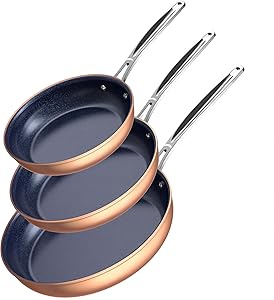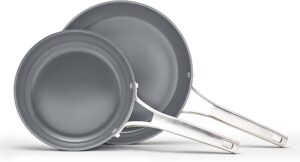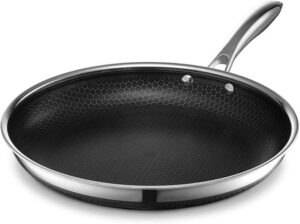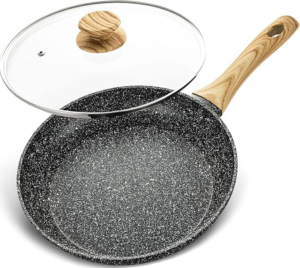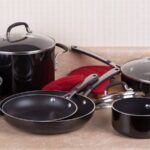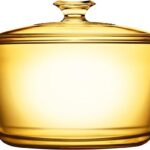Titanium Cookware Pros and Cons you should know about
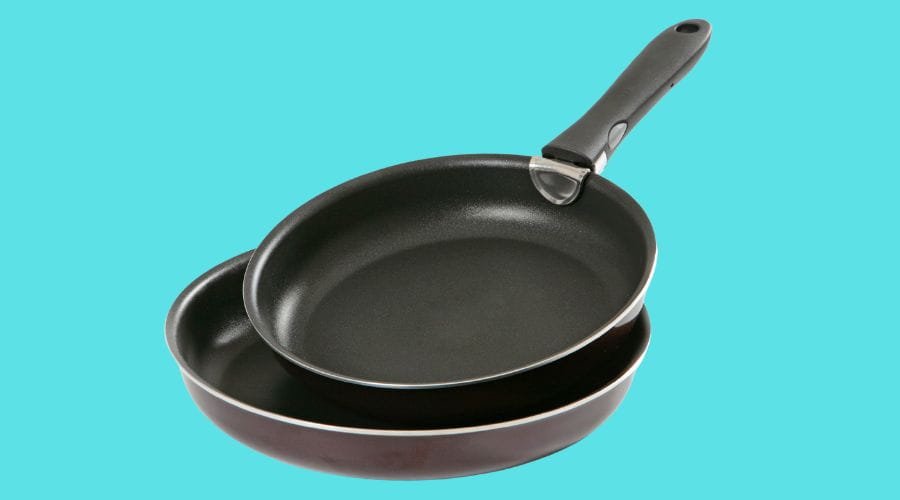
Due to some outclass benefits, titanium cookware has become popular among many home cooks and professional chefs. This cookware is made from titanium alloys known for their lightweight, durability, fast heat distribution, and non-stick properties.
Titanium is a metal best for its strength, low density, and ability to withstand high temperatures. These properties make it an excellent material for cookware, and manufacturers have started making pots, pans, and other kitchen items from this metal.
Titanium cookware is also known for its heat conductivity, which heats up quickly and evenly. This is an advantage over other types of cookware, which can heat unevenly and cause food to cook unevenly.
However, before buying titanium cookware, it is essential to understand its pros and cons.
This article will provide a comprehensive guide about the pros and cons of titanium cookware to help you make an informed decision.
Hence, whether you are an experienced cook or just starting in the kitchen, this information will help you determine whether titanium cookware is the right choice.
Titanium Cookware Pros and Cons
There are an array of titanium cookware pros and cons. So, let’s have a deep look at all of the details which will definitely help you in your daily life.
Pros Of Titanium Cookware
Below are some of the major benefits of using titanium cookware:
Lightweight
The titanium cookware has a great benefit and that is its lightweight. Compared to other materials like cast iron or stainless steel, titanium is much lighter, making it easier to handle and maneuver when cooking. This can be especially beneficial for people with arthritis or other conditions that make lifting heavy pots and pans difficult.
Durability
Titanium is known for its high resistance to corrosion and water, making it an excellent material for cookware. This means that titanium cookware can last for many years without showing any signs of wear and tear, making it a significant investment in the long term.
Fast And Even Heat Distribution
Titanium has a high thermal conductivity, which means it heats up quickly and evenly distributes heat across the pan’s surface. This makes it easier to cook food evenly and avoid hot spots that cause food to burn.
Non-Stick Surface
Many titanium cookware set are coated with a non-stick surface, making it easier to cook and clean. This can save time and reduce the amount of oil and butter needed when cooking, which is a healthier option.
Eco-Friendly
Titanium is a naturally occurring element, and the production process for titanium cookware is less harmful to the environment than other materials, like non-stick cookware that may contain toxic chemicals.
Cons Of Titanium Cookware
Like other cookware materials, titanium has some drawbacks that should be taken into consideration when making a purchase.
Price
One of the most significant disadvantages of titanium cookware is its cost. It is typically more expensive than other materials like stainless steel or aluminum, making it challenging for some people to justify the investment.
Scratch Resistance
While titanium is known for its durability, it is not as scratch-resistant as other materials like stainless steel. If you use metal utensils or rough scrubbers, the pan’s surface can become scratched, reducing its performance and appearance over time.
Poor Heat Retention
Although titanium has a high thermal conductivity, there are better materials for heat retention. This means there may be better choices for slow-cooking dishes or recipes requiring a constant temperature.
Limited Availability
Another disadvantage of titanium cookware is that it is less widely available than other materials like stainless steel or aluminum. This can make it challenging to find the specific sizes and shapes you need and may require more effort to find a reputable supplier.
Care And Maintenance
Titanium cookware requires special care and maintenance to ensure its longevity. For example, it should not be cleaned in the dishwasher, and harsh detergents should be avoided to prevent damage to the surface.
Difference between titanium vs ceramic cookware
The key difference between titanium and ceramic cookware is the material that makes up their respective surfaces. Titanium is a metal alloy composed of several elements, primarily titanium and aluminum, while ceramic cookware is made from an inorganic material that is composed mainly of clay and other minerals.
Titanium cookware has many advantages over its ceramic counterpart, including higher heat-resistance, greater durability and a non-stick surface.
Additionally, titanium cookware is typically lighter in weight and more resistant to corrosion than ceramic cookware.
In terms of performance, titanium cookware can generally withstand higher temperatures and is better suited for cooking over direct heat sources such as gas or electric stoves. Ceramic cookware, on the other hand, is designed for use with low to medium heat settings and can be used on all types of stovetops except induction.
Ceramic cookware also has some advantages over titanium cookware, such as a more versatile range of colors and designs that can make it easier to coordinate with kitchen decor. The smooth surface of ceramic cookware also helps prevent food from sticking, making it easier to clean.
In conclusion, titanium and ceramic cookware have their advantages and disadvantages depending on the type of cooking you intend to do. Titanium is better suited for higher-temperature applications while ceramic is ideal for low and medium heat settings. Ultimately, the
Who and why should use titanium Cookware?
Titanium cookware is a great choice for anyone who wants to enjoy the benefits of strong, lightweight and durable cookware.
Titanium has properties that make it highly resistant to corrosion and rust, making it ideal for use in a wide variety of cooking environments.
This type of cookware is also incredibly easy to clean, as titanium does not react with water, oil or other liquids. As a result, it is also very safe to use and doesn’t require special care when cleaning.
Conclusion
In conclusion, there are several titanium cookware pros and cons.
When deciding, it is essential to do your research and consider the features and benefits of each material. If you are looking for cookware that is lightweight, durable and performs well, titanium cookware may be the right choice for you.
However, if you are on a low budget or prefer more affordable and readily available cookware, consider other options like stainless steel or aluminum.
Ultimately, the choice of cookware will come down to your individual needs and preferences. With a little effort, you can find the perfect cookware for your kitchen that will help you cook delicious meals for years to come.
FAQs
Can titanium cookware be used on induction cooktops?
No, titanium cookware is not suitable for use on induction cooktops. This is because titanium is not an electrically conductive material, and therefore cannot be used on these types of stovetops.
However, some titanium-coated pans may be compatible with induction stoves. Be sure to check the manufacturer’s instructions before purchasing a pan for this purpose.
Is titanium cookware non-stick?
No, titanium cookware is not non-stick. Titanium cookware does not have a non-stick coating but is made from pure titanium which has natural properties that make it resistant to sticking. The surface of the cookware will require seasoning in order to prevent sticking and keep food from burning on the surface.
Is titanium cookware safe to use?
Yes, titanium cookware is safe to use. Titanium is a non-toxic, corrosion-resistant metal that does not leach any hazardous chemicals into your food during cooking. It also has a high heat tolerance and excellent durability which makes it an ideal material for cookware.
Is titanium cookware dishwasher safe?
Some titanium cookware sets are dishwasher safe but check the manufacturer’s instructions before using them.

